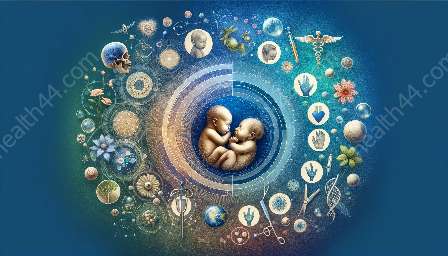As we dive into the fascinating topic of aging process and development, we embark on a journey that intertwines the biological, psychological, and sociological aspects of human growth and development in the context of nursing.
Biological Aspects of Aging: Aging is a complex process influenced by genetic, environmental, and lifestyle factors. At the cellular level, aging involves the accumulation of damage to DNA, proteins, and other macromolecules, leading to a decline in physiological function. This process impacts various organ systems, including the cardiovascular, musculoskeletal, and neurological systems, and contributes to the development of age-related diseases such as cardiovascular disease, osteoporosis, and neurodegenerative disorders.
Psychological Aspects of Aging: Aging also encompasses psychological changes that impact an individual's cognitive function, emotional well-being, and social interactions. Cognitive decline, memory changes, and the experience of loss and grief are common psychological phenomena associated with aging. Moreover, individuals may undergo transitions in identity, purpose, and life satisfaction as they navigate the aging process. Understanding the psychological aspects of aging is crucial for providing holistic care to aging populations.
Sociological Aspects of Aging: From a sociological perspective, aging involves dynamic interactions with family, community, and healthcare systems. Social support, housing options, and access to healthcare services significantly influence the well-being of older adults. Additionally, societal attitudes towards aging and perceptions of aging individuals play a role in shaping the experiences of aging individuals within their social contexts.
Nursing Implications: The aging process presents unique challenges and opportunities for nursing practice. Nurses play a critical role in promoting healthy aging, managing age-related health conditions, and supporting individuals and families through the transitions associated with aging. This encompasses a spectrum of care, including preventive health education, chronic disease management, rehabilitation, and end-of-life care.
Relationship to Human Growth and Development: Exploring the aging process and development aligns with the broader study of human growth and development, which delves into the stages and transitions across the lifespan. The study of aging provides insights into the later stages of development and the impact of accumulated experiences and changes on individuals' overall growth trajectories.
Impact on Nursing: Understanding the multifaceted nature of aging process and development is essential for nursing professionals. It enables nurses to deliver person-centered care, address age-related disparities in healthcare, and advocate for policies that support the needs of aging populations.
In conclusion, the aging process and development represent a rich tapestry of biological, psychological, and sociological factors. By integrating this knowledge into the framework of human growth and development within the context of nursing, we can better understand and address the evolving needs of aging individuals and contribute to enhancing the quality of care for our aging populations.


